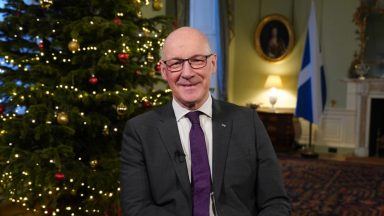A woman claimed a young boy was terminally ill to receive donations in a bogus online fundraiser.
Opal Taggart conned well-wishers out of £5,837 from her home in Rutherglen, South Lanarkshire, between May 29 and April 15, 2020.
The 39-year-old made out that a 15-year-old boy had two brain inoperable brain tumours and was receiving palliative care.
Donations flooded into Taggart’s GoFundMe page which “exaggerated” the boy’s health needs.
The money was later used to fund a trip to a miniature figurine exhibition in England.
Taggart pled guilty at Glasgow Sheriff Court to the single fraud charge.
The first offender was tagged for 27 weeks on August 2, keeping her indoors between 7pm and 7am.
Sheriff Amel Elfallah told her: “I appreciate you were in a difficult financial position.
“The fact of the matter is, you exaggerated his health problems to deceive other people to give you money and it is completely wrong as well as unacceptable.”
The court heard that the boy – now 17 – has a “large number” of health issues and requires additional support.
Prosecutor Robbie McDougall said: “There were growing concerns in relation to matters perhaps being exaggerated in terms of the child’s medical condition.”
His school was under the impression the boy was “terminal” and receiving “palliative care.”
Mr McDougall said: “It was flagged…that a GoFundMe page was established by Taggart who made reference to the child having two inoperable brain tumours.”
The hearing was told the initial target was £1,500 to “take a trip with the boy to Warhammer World”.
Mr McDougall added: “There was reference to creating memories for the boy and language relating to his tumours being inoperable, under palliative care and that the child was terminal.”
Social work contacted police who investigated medical evidence.
It was found that Taggart’s statements were “misleading” and the boy was not suffering from a “terminal illness.”
Mr McDougall said: “It was established that the GoFundMe was falsely representing the condition of the boy.”
Ross Yuill, defending, told the court that there was an “exaggerating of his health difficulties”.
The lawyer added: “If you look at the word’s meaning of palliative it doesn’t mean what we expect it to mean.
“I accept the use of that word to anyone looking at the language would come to the conclusion that it’s end of life.
“It is about relieving him without dealing with the cause of the condition.
“The boy is now 17 and his health issues remain. She does apologise for her involvement.”
Follow STV News on WhatsApp
Scan the QR code on your mobile device for all the latest news from around the country


 Website
Website























